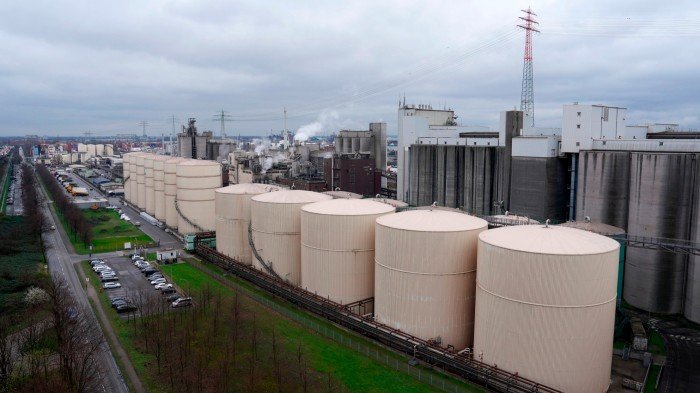Unlock the White House Watch newsletter for free
Your guide to what the 2024 US election means for Washington and the world
US commodities trader Archer Daniels Midland has pledged to stick with its climate commitments, despite looser regulations under Donald Trump that make it easier for companies to scale back environmental goals.
Ismael Roig, ADM’s president for Europe, the Middle East and Africa, said the agricultural company would not join the growing number of US groups dropping or watering down sustainability targets.
“Frankly, if I look forward to 10 or 20 years and you look at what’s going on with climate change, I don’t think this is a thing that we can just shrug off and forget about,” Roig said in Brussels this week.
He added: “This is here to stay [climate change]. It’s a problem that we will be facing over the next few years and we continue to be committed to being part of the solution longer term.”
Roig’s comments come as a divide has emerged among companies in the wake of Trump’s dismantling of environmental regulations, which give priority to economic growth over sustainability.
The ADM executive added that the Chicago-based trader was largely at odds with US groups, which have been more likely to drop sustainable goals while European rivals have tended to stick with them.

“It’s true that in the United States we have seen some companies that have looked at reducing their commitments in this respect. I’m not seeing that happening in Europe,” he said at an event hosted by industry group FoodDrinkEurope in Brussels on Tuesday.
US group Walmart, the world’s largest retailer, and financial institutions, such as New York-based private equity firm Blackstone, have scaled back climate goals.
Blackstone, one of the world’s biggest buyout groups, has reduced its focus on sustainable-linked investments, underlining the increasing preference for financial performance over green considerations.
Other groups, however, have maintained their environmental commitments. In the past week alone, General Motors, Ikea and mining company Rio Tinto have affirmed green targets.
The agrifood industry is one of the largest contributors to global emissions. Farming, transport and food production account for up to 37 per cent of emissions, according to the Intergovernmental Panel on Climate Change.
For that reason, the sector has been widely affected by Trump’s relaxation of environmental rules, with the president’s withdrawal from the Paris climate accord easing regulatory pressure.
Trump’s freeze on Inflation Reduction Act (IRA) funding and cuts in support for sustainable agriculture and rural renewable energy projects has also had a big impact.
Elsewhere, the Environmental Protection Agency (EPA), under new leadership, is reassessing pesticide regulations and carbon-cutting requirements, with the potential for rollbacks.
If implemented, these changes could soften methane reduction targets and loosen environmental oversight for agribusinesses, particularly in meat and dairy production.
ADM, one of the so-called ABCD of agricultural traders that includes Bunge, Cargill and Louis Dreyfus, is also doubling down on regenerative agriculture, which is key to hitting its climate goals.
It announced a new commitment in 2021 to reduce its Scope 3 greenhouse gas emissions by 25 per cent by 2035 compared with 2019 levels. These are indirect emissions that occur outside the control of the company.
Regenerative farming is an approach designed to improve soil health, enhance biodiversity and capture and store carbon in the soil.
Since the start of the decade, the company has committed more than $30mn to regenerative agriculture projects, converting 3mn acres around the world to sustainable practices.
This has prevented the release of about 500,000 metric tons of CO₂ annually, according to the company. “That’s the equivalent of taking 135,000 cars off the road each year,” said Roig.
The trader is now targeting an additional 2mn acres, which would bring the total to 5mn acres, roughly equivalent to the entire agricultural landmass of Belgium.
This month, ADM cut 700 jobs — as it reported a 48 per cent drop in annual profits — as part of a cost-cutting drive due to agribusinesses suffering because of the plunge in corn, soyabean and wheat prices.

